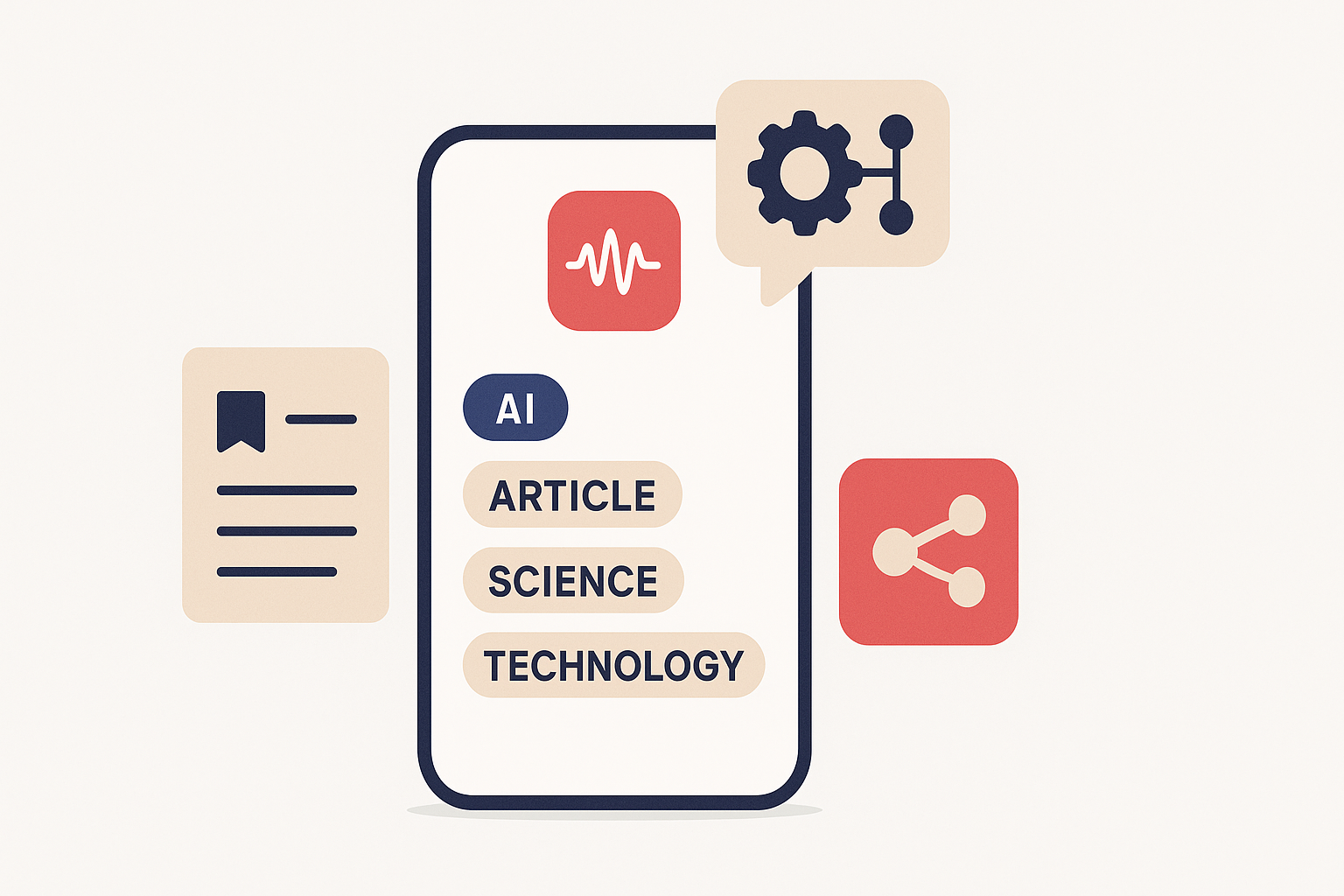
Managing digital content libraries has always been a challenge for creators and media teams. From podcasts and videos to long-form editorial content, assigning the right tags and metadata manually is not only time-consuming but also highly inconsistent. With the increasing demand for content accessibility and discoverability, the ability to generate accurate metadata quickly is critical. Readers today want to know exactly how to create tags with AI and how AI tools can optimize meta titles and descriptions without requiring endless manual work. Platforms like Audiorista make this process easier by applying AI-powered metadata generation that improves content discovery, app navigation, and audience experience. This guide will show you how to leverage modern AI metadata generators, automated tagging, and SEO-focused metadata tools to save time and significantly increase visibility for your digital content.
An AI metadata generator is a tool that applies machine learning models to automatically create descriptive metadata for digital assets. This includes generating meta titles, keywords, and tags based on the content’s context, themes, and audience relevance. Unlike manual tagging, which often varies in quality and accuracy depending on the person completing the task, AI-driven metadata provides consistency across a large catalog of assets.
Manual tagging processes can take hours for teams managing full libraries of audio, video, or written content. Mistakes, missed opportunities, or inconsistent labels make it harder for end users to discover the right content quickly. An AI metadata generator addresses this by streamlining categorization, improving cross-referencing, and ensuring every item in a content library is searchable with precision.
Real-world applications are widespread. Media publishers with large podcast directories, educational educators managing course libraries, and subscription-based apps with growing archives all use AI metadata generation to help their audiences find the most relevant material instantly. In these scenarios, automated tagging is not just a support tool—it is an essential element of content scalability and audience satisfaction.
Creating tags with AI is a straightforward process that begins with analyzing the content itself. AI systems process the linguistic, thematic, and contextual patterns of the asset—whether it’s an article, podcast, or video—and propose relevant tags. These tags are then applied consistently to ensure that assets are aligned under standardized terminology.
By following this automated process, creators and teams build an organized library where users can search and filter content with ease. Tags generated by AI create a structured knowledge base that supports stronger engagement, as audiences naturally locate the content most relevant to their interests. Without standardized tagging, discovery tools often fail to deliver accurate results for users searching within apps or websites.
Content tagging becomes especially important when integrated with larger content discovery tools. With consistent AI-generated tags across a catalog, any filtering system, in-app search tool, or recommendation engine produces more reliable results. Rather than applying inconsistent or incomplete metadata manually, AI ensures that your content ecosystem is optimized for user satisfaction and retention.
Search engine optimization heavily relies on precise metadata, particularly meta titles and descriptions that both indicate relevance to search engines and attract clicks from users. Automated SEO metadata tools powered by AI simplify this process by generating optimized versions of these elements instantly.
Rather than spending hours on keyword research and writing unique descriptions for every piece of content, teams can let AI produce suggestions tailored to content objectives. These AI-generated meta titles and descriptions are designed with relevant ranking factors in mind, placing content in the best possible position to be discovered via search engines. At the same time, they’re concise and engaging enough to improve click-through rates when displayed on search engine results pages.
Reducing manual keyword research and automating description writing frees up time for publishing teams to focus on creative strategy while still ensuring their assets meet SEO standards. The end result is better visibility, improved organic reach, and scalable publishing with consistent quality.
Beyond discoverability, AI-generated keywords serve another important purpose: audience segmentation. By analyzing themes, subjects, and contextual markers, AI can generate keyword sets that group content into defined categories. These categories directly support personalization by helping publishers align content with audience preferences.
When a content library is categorized by relevant AI-generated keywords, recommendation systems can suggest content more accurately to each user segment. For example, audiences using branded apps can see curated playlists, topic-based clusters, or custom feeds built around their interests. As a result, keyword generation with AI not only enhances findability but also deepens engagement and loyalty by connecting audiences with tailored content paths.
For publishers, agencies, and creators looking to apply AI-generated metadata effectively, Audiorista offers a natural platform fit. The Audiorista publishing system integrates AI-driven metadata with a full suite of capabilities for building and managing branded apps. From podcasts to subscription-ready media collections, the platform makes it simple to deliver content that’s easy to find, navigate, and monetize while maintaining ownership of audience relationships.
Explore Audiorista’s powerful features to see how no-code branded apps can be launched and optimized without technical overhead. The combination of metadata precision and easy app design creates a strong foundation for scalable content publishing strategies. With no-code branded apps with metadata optimization, content teams no longer need to choose between speed and quality—AI ensures both work hand-in-hand.
For agencies and large-scale publishers, metadata effectiveness becomes even more critical. Scaling discovery across wide-reaching apps requires precision tagging, structured categorization, and adaptability to serve different audience types. Scaling content discovery through AI-driven metadata is already reshaping how agencies prepare for high-volume publishing across multiple markets. Learn more about scalable content delivery strategies to understand how metadata powers future-proof publishing infrastructures.
Ready to organize your content library with AI-powered metadata and give your audience a seamless discovery experience? Start building your branded app with Audiorista today.